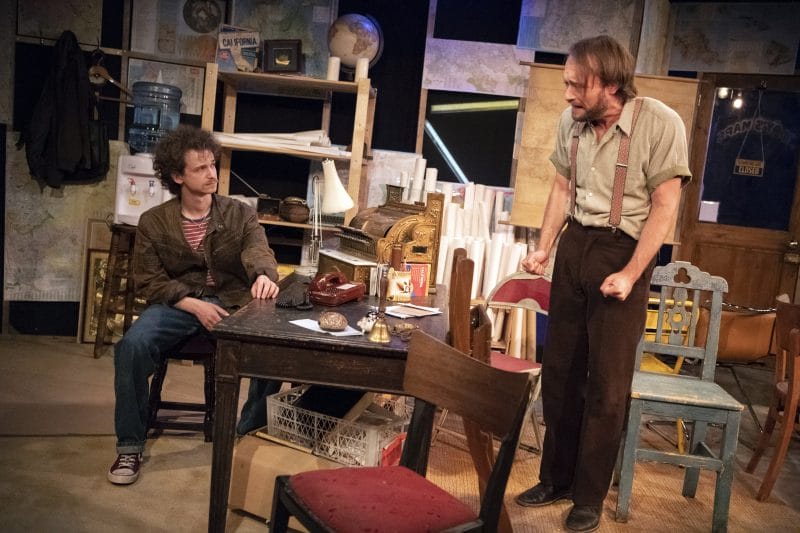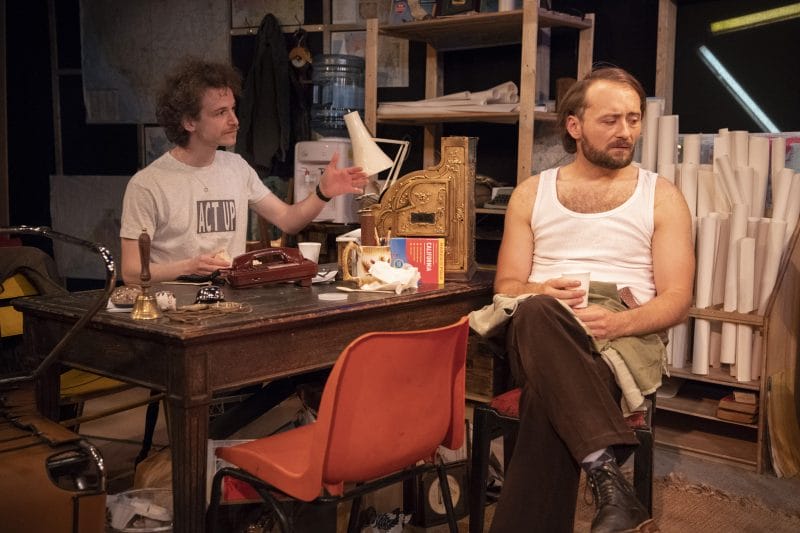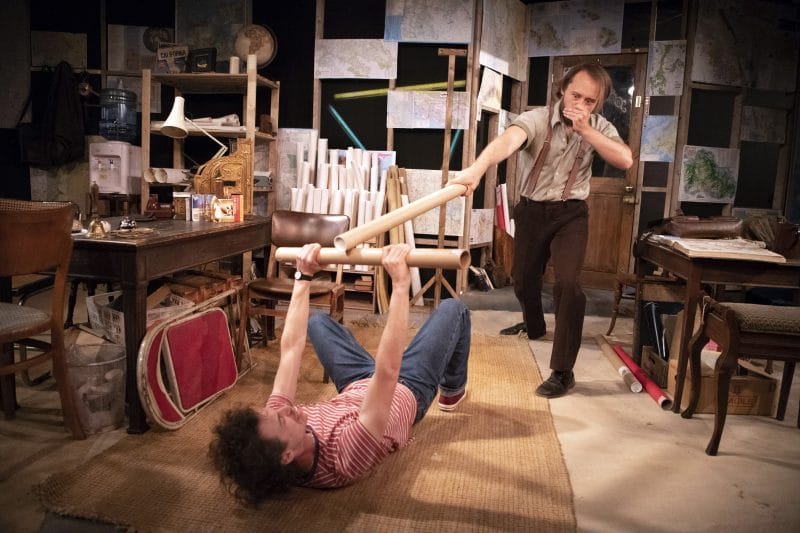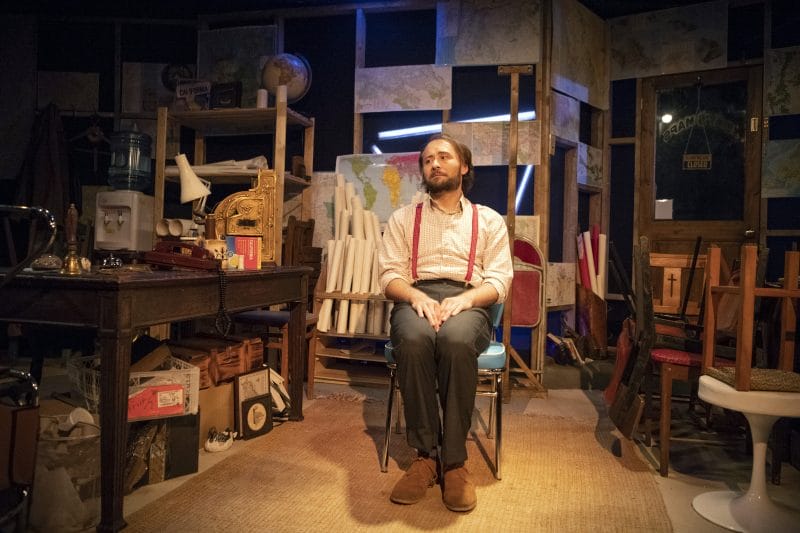 Almost a full year ago, as Angels In America had a revival at The National, a lesser known play of the same era received its U.K. Premiere directed by Ian Brown, at the Tabard theatre. Twelve months on and Lonely Planet by Steven Dietz, transfers to the West End and Trafalgar Studios, reminding us that the same themes can be tackled in a far subtler way.
Almost a full year ago, as Angels In America had a revival at The National, a lesser known play of the same era received its U.K. Premiere directed by Ian Brown, at the Tabard theatre. Twelve months on and Lonely Planet by Steven Dietz, transfers to the West End and Trafalgar Studios, reminding us that the same themes can be tackled in a far subtler way.
Set in the oldest street of an undisclosed American city, Jody’s map store plays host to its owner and his friend Carl; who freely admits he continually lies. It’s the late eighties and America is gripped in the AIDS crisis, Carl keeps filling Jody’s shop with chairs and it becomes clear that these are the chairs of their deceased community.
Jody hasn’t ventured beyond the door of his shop for months, and is forgetting the outside world, and so it falls to Carl to support his friend. We discover, slowly through mysterious phone calls and far-fetched stories that Carl is collecting more than chairs, he’s collecting the lives of those he has lost, so that they won’t be forgotten.
As Carl, Aaron Vodovoz overflows with unlimited energy, with almost childlike naivety he conjures flights of fancy that are fascinating to observe take shape. As the play progresses we get to see the character having to take on a more mature role, and Vodovoz navigates this with a captivating tenderness.
Alexander McMorran as Jody is more calm and considered, his well-paced monologues full of depth and understanding. In the second act this character also develops to a deeper level, and we see him quiver with anxiety as he patiently awaits his test results, the fear written all over his face.
The staging this time round is a little less detailed, with the maps on the wall looking placed for the occasion as opposed to having accumulated over years of trading. The previous version of the production had got this so right, but here the little trinkets stuffed in to every corner are conspicuously absent, however Vodovoz’s perm does make a comeback, reminding us of the era.
What’s so beautiful about Lonely Planet, and Dietz’s writing is that so much can be left unsaid. You will never hear either character mention by name the disease robbing them of their friends, while their sexuality gets only a passing mention, yet the story is so clearly defined.
Just like the Mercator Map in Jody’s store, what we are familiar with isn’t always right. Plays like Angels in America may have the bigger reputation, but Lonely Planet is packed with humility and honesty, and shows the human side of a devastating era.




















